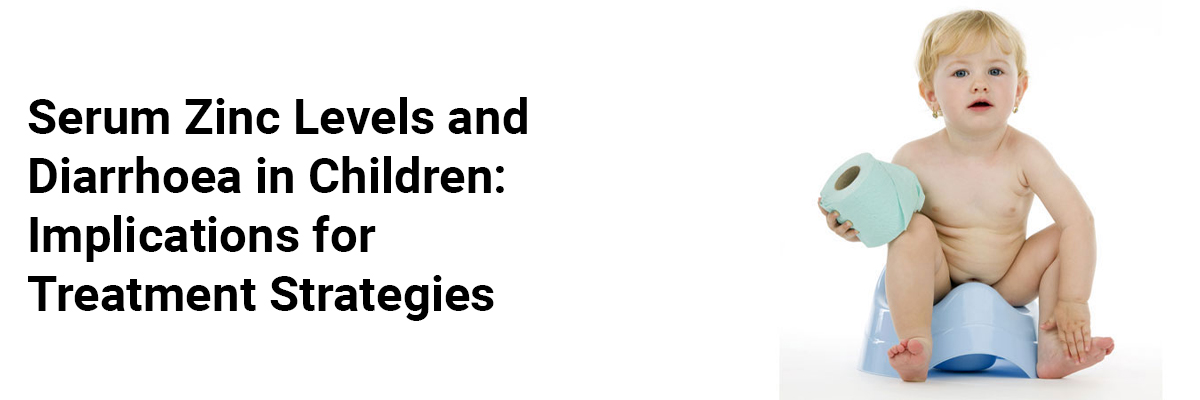
 IJCP Editorial Team
IJCP Editorial Team
Serum Zinc Levels and Diarrhoea in Children: Implications for Treatment Strategies
Diarrhea remains a significant cause of illness and death in children under five years of age, particularly in developing countries. A recent study examined the serum zinc levels of children with diarrhea and explored the relationship between diarrhea types, frequency of episodes, and zinc deficiency.
The study included a total of 402 participants who underwent Serum zinc levels measurement, while only selected subjects underwent stool microscopy and culture.
The findings revealed-
- 84.1% of children with diarrhea and 56.2% of children without diarrhea exhibited zinc deficiency.
- When compared to age and gender-matched controls, children with diarrhea demonstrated significantly lower mean serum zinc levels.
- Zinc deficiency was particularly prevalent in children with persistent diarrhea and dysentery.
- Children with persistent diarrhea had significantly lower serum zinc levels than those with acute watery diarrhea.
- A negative correlation existed between serum zinc levels and various diarrhea-related factors, including stool frequency, duration of the current episode, frequency, and duration of diarrhea episodes in the previous year, and severity of dehydration.
These findings emphasize the importance of addressing zinc deficiency in managing diarrhea in children. Based on the results, the study supports the current recommendations by the World Health Organization regarding zinc supplementation for children with diarrhea. It also suggests that children with persistent diarrhea may require longer durations of zinc tablet treatments to address zinc deficiency effectively.
These findings have significant implications for clinical practice, highlighting the need to assess serum zinc levels in children with diarrhea routinely. Incorporating zinc supplementation as part of the standard treatment regimen for diarrhoeal episodes can potentially improve outcomes and reduce the burden of diarrhea-related morbidity and mortality in children. Additionally, healthcare providers should consider extended zinc tablet treatments for children with persistent diarrhea, considering the potential benefits of prolonged supplementation in these cases.
Ikejiaku UP, Anochie I, Nwolisa E, Iregbu F, Amamilo I. Determination of Serum Zinc Levels of under Five Children with Diarrheal Disease. Current Overview on Disease and Health Research.2023;7:64–79. https://doi.org/10.9734/bpi/codhr/v7/5224A

IJCP Editorial Team
Comprising seasoned professionals and experts from the medical field, the IJCP editorial team is dedicated to delivering timely and accurate content and thriving to provide attention-grabbing information for the readers. What sets them apart are their diverse expertise, spanning academia, research, and clinical practice, and their dedication to upholding the highest standards of quality and integrity. With a wealth of experience and a commitment to excellence, the IJCP editorial team strives to provide valuable perspectives, the latest trends, and in-depth analyses across various medical domains, all in a way that keeps you interested and engaged.




















Please login to comment on this article